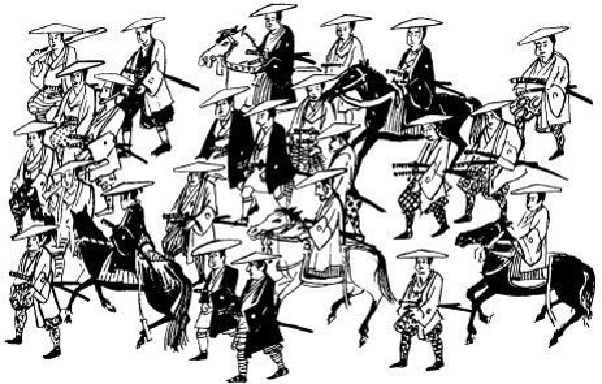Geography Reference
In-Depth Information
(15)
Samuari
on journey.
The greater proportion of the duties of a
samurai
were concerned with the administra-
tion of the domain to which he was attached, or, if he was part of the central organization
at Edo, with the governance of Edo itself, or of the country as a whole. The duties would
vary from low-grade ones like standing guard at the castle gates to being senior councilor
to a
daimyō.
If his income was derived from an actual holding of land, he would also oc-
cupyhimselfwiththis.Inadditiontohisordinaryduties,therewouldofcoursebeacertain
amount of obligatory ceremonial attendance. Since, therefore, most of the functions of the
senior
samurai
were performed inside the castle or the government office, they might not
be often seen by people of other classes, unless they were on a journey, or functioned as
magistrates.
The
daimyō
in most cases had to make a periodical stay of one year every other year,
in Edo. When they were on the road, they and their attendants formed a considerable spec-
tacle: notthatthepopulace stoodandwatched themgoby,fortheleaders oftheprocession
shouted “Down! Down!” and all had to prostrate themselves until the column had passed.
An incident right at the end of the Tokugawa period, in 1861, when the first breaches in
the seclusion of Japan had been made, illustrates the respect that was thought due on such
occasions. The
daimyō
of Satsuma was returning to his domain, and when he and his ret-
inue were nearing Yokohama, where there was already a settlement of foreign merchants,
four British subjects tried to ride through the procession. The
samurai
drew their swords,
and of the intruders one died and two were injured. This action of the foreigners showed

